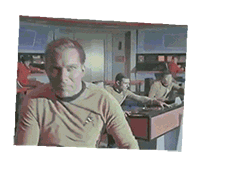 Stop doing everything. Don’t say anything or be anything. Get as small as you possibly can without disappearing. Don’t exist. Or keep existing, but differently than before.
Stop doing everything. Don’t say anything or be anything. Get as small as you possibly can without disappearing. Don’t exist. Or keep existing, but differently than before.
Remember: criticism is the same thing as wholesale condemnation and also murder, so react accordingly.
Apologize, but don’t really mean it, and plant a seed of secret resentment so deep in your own heart that years later you can’t even remember that you’re the one who nurtured it and made it grow, it seems that much like a native part of you.
Sink into a hole so deep that no one can ever find you.
No. No. No. No no no no no no no no no no no no no no no no no no no no no no no no no no no no no no no no no no no no no no no no no no no no no no no no no no no no no no no no no no NO. NO.
JUST DIE. JUST GET SICK AND DIE AND THEN YOU’LL FEEL TERRIBLE YOU EVER SAID THOSE THINGS BECAUSE I’LL BE DEAD AND YOU’LL BE SO SO SO SORRY AND YOU’LL WISH YOU COULD BRING ME BACK BUT YOU CAN’T.
Give up on all of your goals immediately.
Tell everyone you know about the criticism, but in a way that makes it clear that you expect them to publicly find it ridiculous and assure you there’s not a shred of truth to it. Do this repeatedly, first while sober, then later after several glasses of wine on a Wednesday afternoon when no one else is really drinking except for you. “Can you believe it?” Ask them that repeatedly. “Can you believe that? About me?” Ask until no one will meet your eyes.
Spit until your throat bleeds.
Remember that life is a rich tapestry.
Become so rich and strong and tall that you’re a giant made out of gold and nobody can hurt you and everything you do is perfect and you can use your laser diamond eyes to melt the lungs of your enemies.
Dwell on it.
You can either be perfect or the biggest piece of shit who ever existed but not both, so if the criticism is right, you are the biggest piece of shit who ever existed. If it is not right, you are perfect and everyone else is wrong.
Fall in love with whoever criticized you. Don’t walk away until you’ve ruined their marriage.
Whisper their criticism every night to yourself until you have it memorized, word for word. Remember it forever. Have the words stitched into the shroud that covers your body before you’re lowered into the tomb so you and your criticism can embrace one another for eternity.
Do not rise above it. Never rise above anything. The sky is no place for a human.
Be sure not to separate the tone of the criticism from the content. If it was said ungracefully, it cannot be true. If it was said reasonably, it cannot be false.
Send an email explaining why you don’t deserve to be criticized, then another six emails after that, each one explaining the last, like a set of Russian nesting dolls that don’t think it’s your fault.
Set fire to something that was once beautiful.
Run into a cave and break your ankle so that people have to come find you and they see you lying at the bottom of this beautiful cave and maybe there’s a waterfall and the light from the crystals makes you look really beautiful and they say “Are you okay?” and you say “I think so” and they say “oh my God have you been here alone this whole time with a broken ankle” and you say “it’s okay” and they say “you’re so brave” and you are brave and you look so beautiful surrounded by cave crystals and everyone stands over you and says “oh wow” and “you poor beautiful thing” and “I’m so sorry we let you run into the cave but I’m so glad we found you” and let them carry you home and promise to be your best friends forever and that everything’s their fault and also they named the cave after you and you’re prettier than all of your enemies and your enemies all died of jealousy while you were in the cave.
Remember that there are only two kinds of people in the world: fans and haters. No true fan would ever express a criticism of you or your work; conversely no hater could ever seek to engage in a good-faith debate about something you said or did they disagree with. Dismiss everything everyone has to say about you.
Move away.
If it’s a close friend, say “Thank you for being so honest with me,” and then never talk to them again.
Do something with your feelings right away. It doesn’t matter what. Lash out, make a sculpture, whatever.
Log into YouTube and call someone “living Hitler” and “a waste of skin” until you feel better about yourself.
Remember, if someone doesn’t like your work, that means they don’t like you, and they wish that you had never been born, so just lay down in the road and die.
Read more How To Respond To Criticism at The Toast.










 The first time I met Bill Murray, I was 18 years old and wearing a miserable brown ensemble.
The first time I met Bill Murray, I was 18 years old and wearing a miserable brown ensemble.